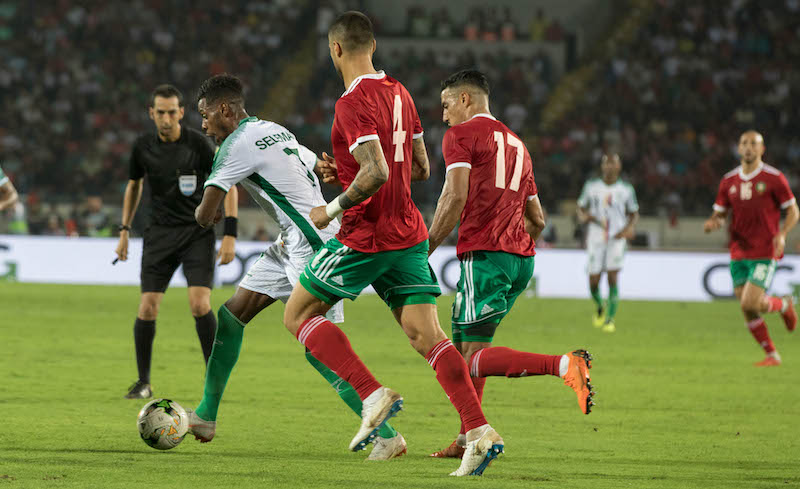The Comoros Islands reach another remarkable stage in their brief footballing journey as they debut at the Africa Cup of Nations finals in Cameroon on Monday.
The island archipelago is one of football’s youngest nations, having joined FIFA in 2005 but in less than two decades compete at the continental championship in an unlikely fairytale.
They meet Gabon in their first Group C game in Yaounde on Monday, seeking to continue rattling the established order of the African game but in a tough group with former winners Ghana and Morocco to also play against.
The island nation, which declared independence from France in 1975, has a population of just a million but cleverly looked to the old colonial power for players to help them reate a competitive national team.
It was 15 years ago that they set up trial games in Marseille, where there is a large Comorian expatriate community, looking to build the basis of a national team.
It was slow at first and they only entered their first World Cup qualifying campaign ahead of the 2010 finals, while it was only for the 2012 finals that they first competed in Cup of Nations qualification.
They have played 28 qualifiers over the last six editions, winning five games, drawing eight and losing other 15. Not exactly a record to set the pulses racing, but in the 2021 qualifiers won a first-ever competitive international away from home in Togo and held Egypt to a home draw to finish second in their group and book a place in Cameroon.
“Some of the early days were chaotic,” says coach Amir Abdou, who was a social worker in Agen and part-time amateur coach when he first agreed to help the Comorans.
Seven years on, Abdou is lauded for his efforts on not identifying players with Comorian roots across France, but also being able to put them together into an efficient unit.
“The first team we put together was in just a matter of days,” remembers Abdou.
Some players are at top flight clubs, like top scorer El Fardou Ben Mohamed at Red Star Belgrade in Serbia or Faiz Selemani at Kortrijk in Belgium.
But most compete at lower league clubs in France and cannot be regarded as much more than journeyman footballers, making their achievement of securing a place at the finals even more remarkable.
“This qualification is the result of a lot of work over time. We are not here by chance,” insisted Abdou at Sunday’s pre-match news conference.

